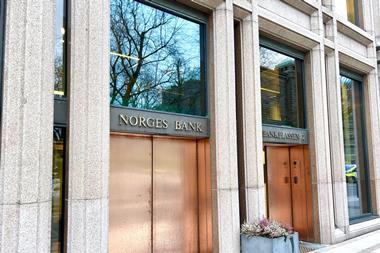Coller Capital’s latest quarterly Global Private Equity Barometer suggests the world’s limited partner (LP) community is almost unanimous in its expectation that defined contribution (DC) pension schemes will become a source of private equity capital over the next five years.
The findings, based on the private equity secondaries specialist’s survey of 114 investors worldwide, also show growing enthusiasm for private equity in general, and buy-and-build and private credit in particular – despite some concern over what the exit environment for private assets might look like in 3-5 years’ time.
Almost nine out of 10 investors see DC providing private equity capital within five years, with 27% of European LPs believing DC schemes will provide “significant” capital to the asset class.
Stephen Ziff, a partner at Coller Capital, said: “The backdrop to the finding about DC assets going into private equity is one of more capital in general moving into alternatives, and private equity in particular.
“But in addition there has been a shift in the pensions landscape over the past several years, and GPs are certainly looking for new sources of capital. The industry is slowly starting to get to grips with the challenges, to varying degrees – particularly features of DC investments like liquidity and daily pricing.”
The survey hints at more big shifts in the way funds are raised for private firms.
Responses suggest a big increase in the number of investors making direct investments or co-investments for more than 25% of their private equity assets within five years – going from 23% of respondents to 38%.
Credit also looks set to grow in importance alongside equity in private asset portfolios, with 34% of LPs expecting to increase their allocation over the next 12 months.
“Credit is still attracting capital, reflecting this continuing disintermediation of the banks,” said Ziff – a trend reflected in another survey finding, that 65% of investors expect collateralised loan obligations (CLOs) and high-yield bonds to provide a larger share of buyout debt financing in the next three years.
Investors are focusing their attention on the middle ground of growth equity, at the expense of both large LBO and venture capital.
Two-thirds of survey respondents expect buy-and-build to outperform other buyout investments over the coming cycle.
LPs also think further enhancement of GP operational skills – a crucial capability for buy-and-build – has the greatest potential to boost returns, relative to greater specialisation, improved understanding of macroeconomic cycles, new fund structures or wider adoption of ESG principles.
“LPs recognise that the buy-and-build approach will become increasingly prominent in an era when you can’t just rely on financial engineering,” Ziff said.
Meanwhile, almost half of the LPs surveyed say venture capital is now “irrelevant” to the funding of early-stage innovation.
Ziff suggested this is down to the rise of new sources of funding – including crowdfunding, corporate venture within the cash-rich tech sector, and second-generation entrepreneurs who are seeding their next business with proceeds from their first.
“But in the venture world itself,” he added, “a number of funds have moved from pure venture into growth equity financing and buyout without there being a steady stream of replacements.”
Ziff said the survey highlights the “continued resurgence” in private equity, revealing an LP community looking to increase their allocations over the next 12 months and expressing positive expectations for returns over the next 3-5 years – higher than they were for the same period two years ago.
The contrast with hedge funds, where one-third of respondents plan to reduce allocations – ostensibly in the light of the divestment decision recently taken by CalPERS – is clear from the survey.
“Private equity is generating performance in a low-yield environment,” said Ziff. “The one note of caution is that LPs do have an eye on the exit environment looking 3-5 years’ out.”
Almost 40% of the respondents – 41% of which were based in Europe, while 45% represented pension funds or insurance companies – expect the next “major downturn” to occur within three years, while there is near-unanimity on a major downturn within five years.
Fieldwork for the Barometer was undertaken for Coller Capital in September and October 2014 by Arbor Square Associates.










